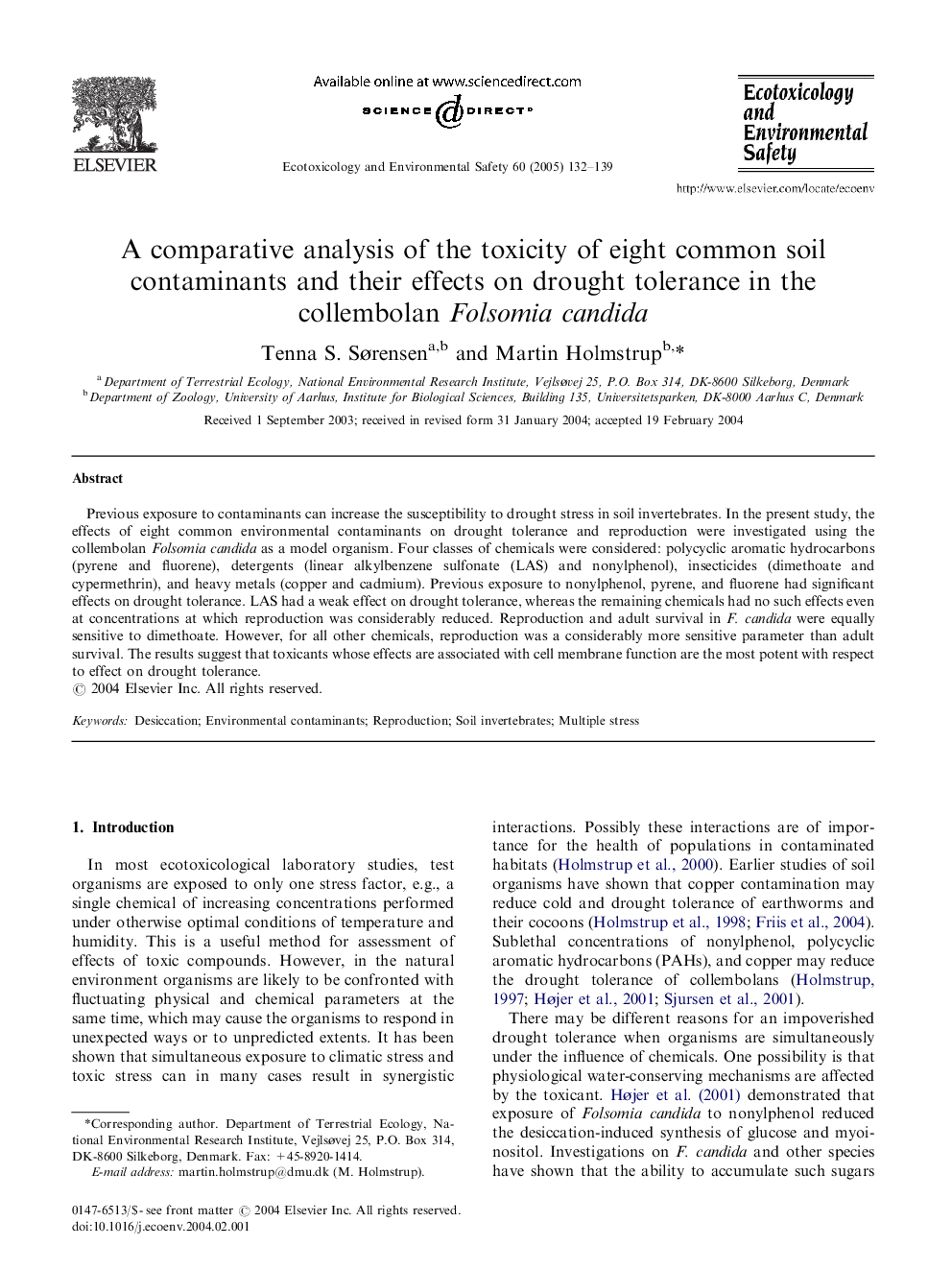| Article ID | Journal | Published Year | Pages | File Type |
|---|---|---|---|---|
| 9454823 | Ecotoxicology and Environmental Safety | 2005 | 8 Pages |
Abstract
Previous exposure to contaminants can increase the susceptibility to drought stress in soil invertebrates. In the present study, the effects of eight common environmental contaminants on drought tolerance and reproduction were investigated using the collembolan Folsomia candida as a model organism. Four classes of chemicals were considered: polycyclic aromatic hydrocarbons (pyrene and fluorene), detergents (linear alkylbenzene sulfonate (LAS) and nonylphenol), insecticides (dimethoate and cypermethrin), and heavy metals (copper and cadmium). Previous exposure to nonylphenol, pyrene, and fluorene had significant effects on drought tolerance. LAS had a weak effect on drought tolerance, whereas the remaining chemicals had no such effects even at concentrations at which reproduction was considerably reduced. Reproduction and adult survival in F. candida were equally sensitive to dimethoate. However, for all other chemicals, reproduction was a considerably more sensitive parameter than adult survival. The results suggest that toxicants whose effects are associated with cell membrane function are the most potent with respect to effect on drought tolerance.
Related Topics
Life Sciences
Environmental Science
Environmental Chemistry
Authors
Tenna S. Sørensen, Martin Holmstrup,
